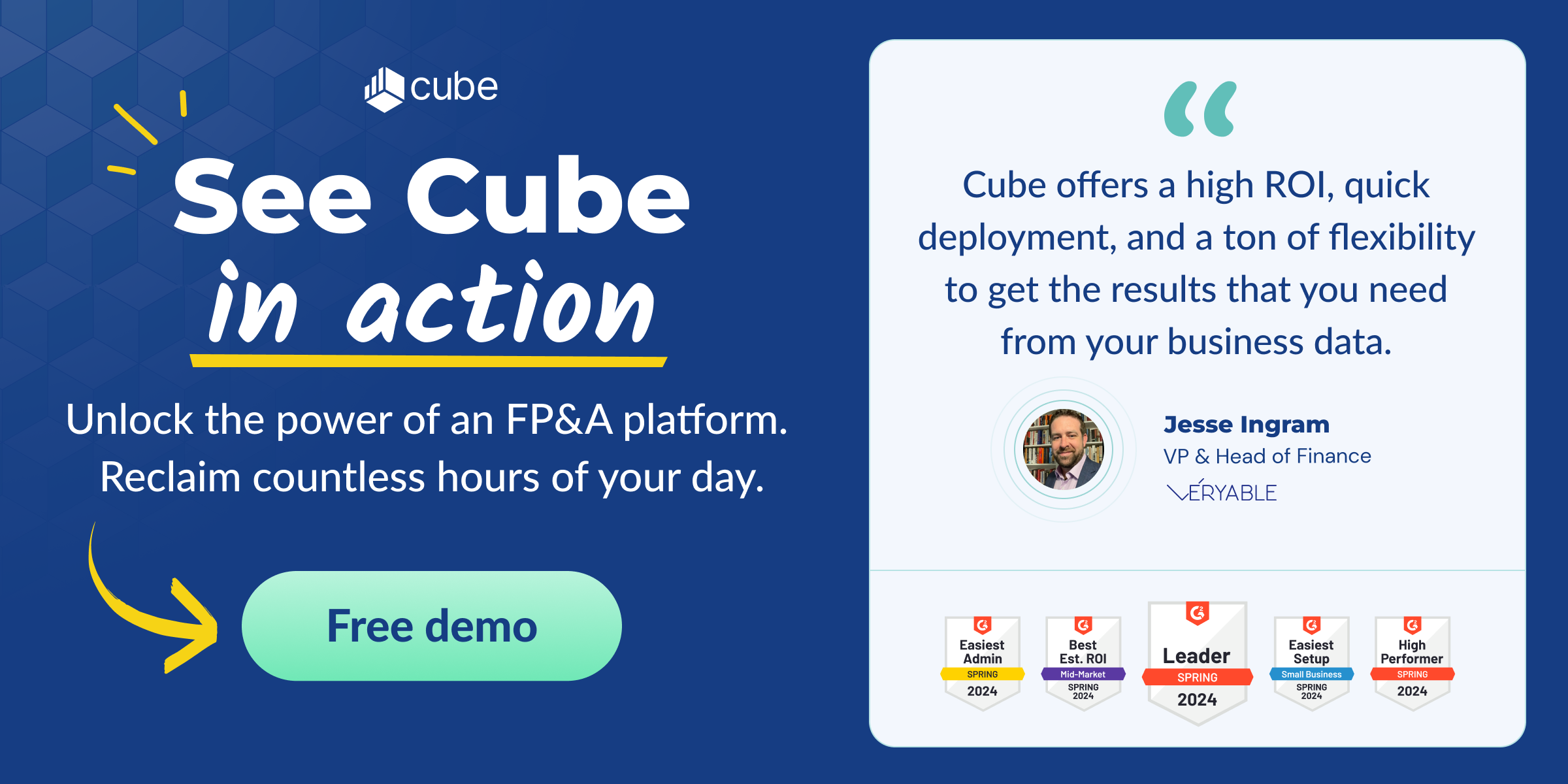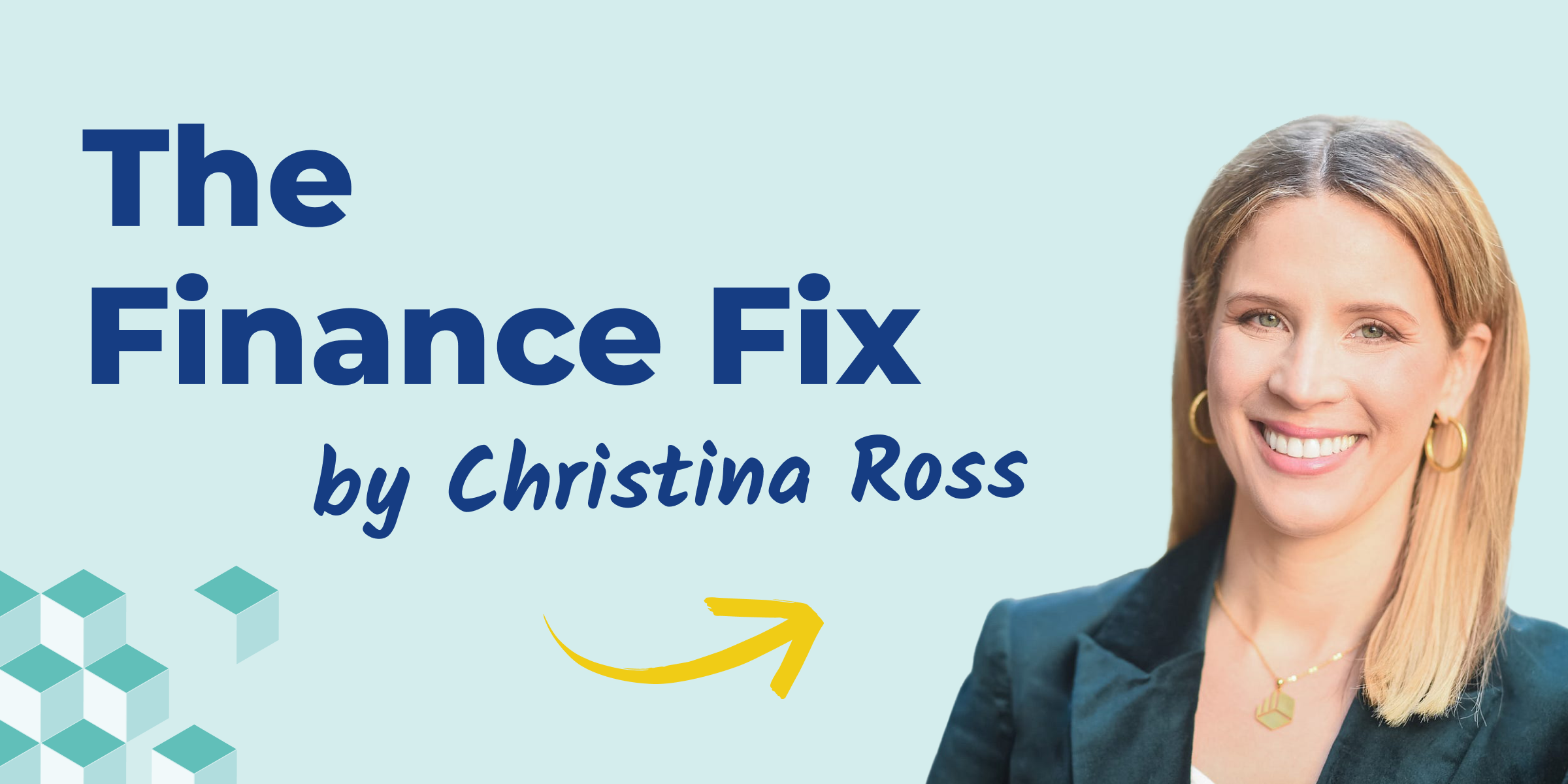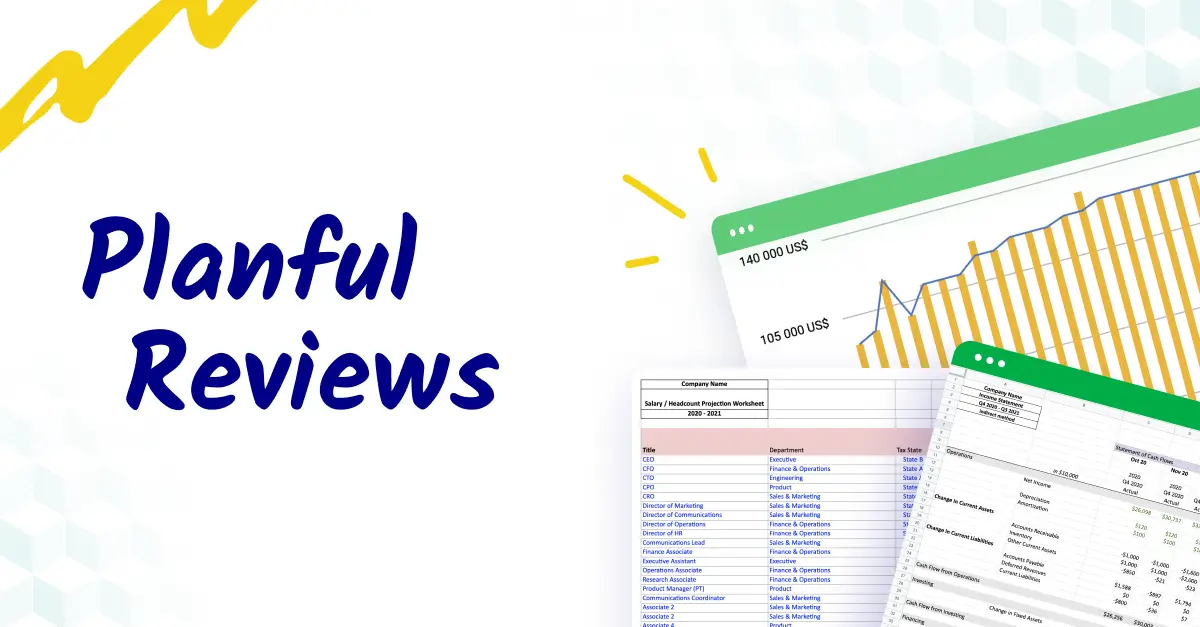How AI budgeting software tools improve a company’s financial health
A common misconception is that AI will take over certain jobs. However, the reality is closer to saying that AI is a powerful new tool that enhances how people work, especially in finance. Here’s how AI budgeting tools can make a significant difference in your company’s financial health:
- Better accuracy: These tools analyze your financial data to help you make more accurate budgets and forecasts. By reducing human errors, you get a clearer picture of where your money is going and what you can expect in the future.
- Saving time: AI can automate repetitive tasks that usually eat up time, like data entry or generating budgets. This lets your finance team focus on more important strategic decisions rather than getting bogged down in the paperwork.
- Smarter decisions: AI gives you real-time insights into your finances, so you can spot trends and potential issues before they become big problems.
- Greater scalability: AI budgeting tools can handle vast amounts of data. So you never have to worry about keeping everything organized and running smoothly, no matter how many budgets you have to make.
- Planning for the future: AI allows you to run different budgeting scenarios to see what might happen if you make certain business decisions. This way, you can better plan for the future, knowing you’ve considered all the possibilities.
The best AI tools and software for budgeting
When it comes to budgeting your company’s finances, having the right budgeting software can make all the difference. Below, we’ve compiled a list of the best AI budgeting tools to help you keep track of your expenses, make informed financial decisions, and plan for the future.
1. Cube

Cube is the best FP&A software tool for budgeting, especially for growing businesses and enterprises. The cloud-based FP&A software uses powerful AI to analyze financial data, generate detailed what-if scenarios, and predict the financial impact of different strategic decisions.
By adjusting variables such as revenue, expenses, or hiring plans, users can see how these changes would affect their financial outcomes to make more informed decisions. It helps companies hit their numbers–without having to sacrifice their spreadsheets.
Customers love the ease of implementation, responsive customer support, and vast amount of time saved from daily financial operations.
Best for: AI-powered FP&A
Features:
- Uses powerful AI to analyze historical data and produce accurate budget forecasts
- Integrates seamlessly with Excel and Google Sheets
- Allows users to create unlimited what-if scenarios to simulate the financial impact of different business decisions
- Empowers teams to generate real-time financial reports with customizable templates
- Supports collaborative work across different departments
- Provides customizable dashboards that offer visual insights into key financial metrics
- Automatically syncs financial data from sources like ERP, CRM, and HRIS systems
- Provides highly responsive customer support to assist users through setup, troubleshooting, and optimization of the platform

2. Datarails FP&A Genius

Datarails FP&A Genius is an AI-powered extension of the Datarails FP&A platform designed for financial planning, reporting, and analysis processes. It leverages conversational AI to automate data consolidation, generate real-time insights, and facilitate scenario modeling in Excel.
Best for: Conversational AI for data consolidation
Features:
- Provides conversational AI to answer financial questions in generating financial reports
- Automatically consolidates financial data from multiple sources
- Supports scenario modeling to explore various financial outcomes
- Integrates with Excel
Pricing: Datarails FP&A Genius pricing is not publicly available.
3. Mosaic Tech

Mosaic Tech is an FP&A platform that uses AI to enhance financial planning, budgeting, and analysis. The platform’s ARC (Augmented Reality Collaboration) AI capability allows finance teams to automatically summarize data trends and create budgeting scenarios. Mosaic integrates with ERP, CRM, and HRIS systems.
Best for: Data summarization
Features:
- Offers 150+ metrics to report on
- Customizable dashboards and templates for reporting
- Supports what-if scenarios
Pricing: Mosaic Tech offers three plans, however, pricing is not publicly available.

4. Booke.ai

Booke.ai is an AI-driven platform that automates bookkeeping processes for businesses and accounting firms. It can integrate with existing accounting software like Xero and QuickBooks. Booke.ai uses the AI-driven Robotic Bookkeeper to automate categorization and reconciliation.
Best for: Automated bookkeeping
Features:
- Categorizes transactions and reconciles accounts using AI
- Optical Character Recognition (OCR) AI extracts data from invoices, receipts, and bills
- Client portal that allows accountants and clients to share documents and ask questions
- Monitors financial records for inconsistencies and errors
Pricing:
- Data Entry Automation Hub: $20/month per business
- Robotic AI Bookkeeper: $50/month per business
5. Gusto

Gusto is a cloud-based platform designed to handle payroll, benefits, and HR management for businesses. Beyond its core features, Gusto offers AI-driven tools, including a custom AI report generator that can inform budget decisions for payroll and HR.
Best for: AI-powered payroll reports to support budgeting needs
Features:
- Supports budget planning with insights from payroll and HR data
- Automates payroll processes like tax calculations, filings, and direct deposits
- Manages employee benefits with self-service options
- Offers tools for hiring, onboarding, and managing employees like performance reviews and time-off tracking
- Integrates tools for tracking employee hours, PTO, and holiday schedules
Pricing:
- Simple: $40/month (plus $6/month per person)
- Plus: $60/month (plus $9/month per person)
- Premium: $135/month (plus $16.50/month per person)
6. Xero

Xero is an accounting software that uses AI to help small businesses manage their financial operations. It features automated bank feeds, invoicing, and expense tracking. Xero’s AI-powered Analytics Plus allows users to create budgets by predicting future cash flow.
Best for: AI-driven accounting, budgeting, and bookkeeping
Features:
- Uses AI to predicts short-term cash flow based on current and historical data
- Automatically imports and categorizes bank transactions
- Allows for invoice creation with customizable templates
- Offers financial reports for profit and loss statements, balance sheets, and cash flow statements
- Offers expense tracking and reimbursement claims
Pricing:
- Early: $0.75/month
- Growing: $2.10/month
- Established: $3.90/month

7. Ramp

Ramp is a spend management platform designed to handle expense management, corporate card usage, and accounts payable. Ramp uses AI to verify that invoices match POs to generate a bill and route for approval. The platform also offers a corporate card to track and monitor business spending and manage budgets.
Best for: Automated expense management
Features:
- Uses AI to automatically generate and categorize receipts
- Automatically categorizes and reconciles expenses through the corporate card
- Automates bill payments, approvals, and month-end close
- Offers customizable guardrails to prevent out-of-policy spending
- Issues both physical and virtual corporate cards with built-in spend controls
Pricing:
- Ramp: Free
- Ramp Plus: $15/user/month
- Ramp Enterprise: Contact sales
8. Planful

Planful is a cloud-based financial performance management software that supports financial planning, budgeting, and consolidation. The platform uses AI to automate processes like month-end close and scenario planning. Planful Predict is their AI tool that assists in budgeting by providing predictive insights and automated forecasting.
Best for: Machine learning for predictive insights
Features:
- Uses AI to analyze historical data and predict future financial trends
- Features pre-built templates for budgeting
- Manages month-end close process by automating data collection, consolidation, and reporting
- Integrates with ERP, CRM, and HCM systems
- Offers reporting tools that support self-service capabilities for creating management and ad-hoc reports
Pricing: Planful pricing is not publicly available.
9. Vena Insights

Vena Insights is a reporting and analytics tool embedded within the Vena platform. It leverages Microsoft’s AI and machine learning technologies, including Power BI, to provide finance teams with tools for data visualization, scenario analysis, and predictive analytics.
Best for: Data visualization
Features:
- Connects with existing Vena data to provide insights without the need to export data to external applications
- Uses AI and machine learning models to deliver predictive analytics, anomaly detection, and scenario comparisons
- Allows users to create and customize dashboards to visualize data
- Offers role-based permissions and data security so only certain members can access financial information
Pricing: Vena pricing is not publicly available.

10. Jedox

Jedox is a financial planning and performance management platform designed to support FP&A and integrated business planning across finance, sales, HR, and operations. The platform uses AI to model business scenarios, integrate data from multiple sources, and assist in cross-organizational planning for global teams. Jedox assists budgeting with predictive forecasting, which automatically generates forecasts based on historical data.
Best for: AI-driven modeling and planning
Features:
- Uses AI to analyze historical data and predict future financial outcomes to assist in budgeting decisions
- Incorporates AI to allow users to ask questions and receive insights directly within the platform
- Offers an Excel-like interface
- Integrates financial and operational data into a single source of truth
- Enables users to create financial models and forecasts
- Allows users to create customized ESG reports in-house
Pricing: Jedox pricing is not publicly available.
11. Anaplan

Anaplan is a cloud-based financial planning platform designed to support large enterprises in managing planning processes across finance, supply chain, sales, and HR. It enables real-time collaboration within their custom dashboards. Anaplan integrates AI-driven features through its PlanIQ, which assists budget forecasting accuracy with machine learning and predictive analytics.
Best for: AI-enhanced financial performance management and planning
Features:
- Utilizes machine learning for budgeting, forecasting, and scenario planning
- Integrates financial and operational planning into a single platform
- Uses Hyperblock to power real-time, in-memory calculations that allow users to model large-scale scenarios
- Includes tools for budgeting, forecasting, long-range scenario planning, and financial consolidation
- Supports demand planning and supply chain optimization
- Provides capabilities for headcount planning, compensation modeling, and workforce optimization
Pricing: Anaplan pricing is not publicly available.
Learn more in this complete Anaplan review.
12. Workday Adaptive Insights

Workday Adaptive Planning is a cloud-based EPM software designed for financial planning, modeling, and reporting. It enables businesses to create financial models, perform scenario analysis, and generate forecasts using AI and machine learning.
Best for: AI forecasting
Features:
- Enables the creation of financial models that incorporate various business drivers
- Allows for unlimited scenario comparisons
- Uses machine learning to power financial forecasts
- Offers real-time insights through customizable dashboards and reports
Pricing: Workday Adaptive Planning pricing is not publicly available.

13. PlanGuru

PlanGuru is a financial planning software marketed towards small to medium-sized businesses, nonprofits, and financial advisors. The platform uses AI to assist with budgeting, forecasting, and financial analysis and allows users to project up to 10 years of financial data.
Best for: AI-powered budgeting and forecasting
Features:
- Uses AI to create budgets and forecasts for up to 10 years, using over 20 pre-built forecasting methods
- Provides a 3-way forecasting structure that integrates income statements, balance sheets, and cash flow statements
- Consolidates financial data from multiple departments
- Allows users to build custom reports and dashboards and export data to PDF, Word, or Excel
Pricing: Planguru pricing is not publicly available.
14. Budgyt

Budgyt is an AI-powered budgeting platform with features like multi-department budgeting, customizable dashboards to view data, and real-time data access. It allows multiple users to work on budgets simultaneously while maintaining control over data access permissions. Budgyt can also integrate with existing accounting software like QuickBooks and Xero.
Best for: Budgeting and planning
Features:
- Allows users to consolidate budgets across multiple entities, departments, or sub-departments
- Users can access historical transactions through hyperlinked data
- Offers dashboards that allow users to view budgets in formats like P&L by cost center, budget comparisons, and other custom reports
- Centralizes all data entry
Pricing: Budgyt offers three plans, but pricing isn’t publicly available.
Use the best AI budgeting tool for your business
It’s important to remember that AI tools are not replacing FP&A teams—they’re enhancing them. AI automates the time-consuming tasks and allows finance professionals to focus on strategy and decision-making. As AI continues to evolve, it will play an even more significant role in helping businesses stay agile and responsive to change.
Now that you know all about the best AI tools for budgeting, you’re ready to streamline your financial processes and make smarter, data-driven decisions. Say goodbye to time-consuming manual data entry and welcome faster, more accurate budget forecasting.
For those looking for the best of the best business budgeting software tools, Cube offers seamless integration with your existing spreadsheets and powerful insights to elevate your financial planning. Request a free demo today to learn how Cube can fast-track your financial processes.



.png)




![14 best AI budgeting tools and software [2024 review]](https://www.cubesoftware.com/hubfs/Blog%20image%20%2868%29.png)






![Top Pigment competitors & alternatives [2025 reviews]](https://www.cubesoftware.com/hubfs/pigment%20alternatives.png)
![Vena Software: Review, Alternatives & Pricing [2025]](https://www.cubesoftware.com/hubfs/Prophix%20Alternatives.png)
